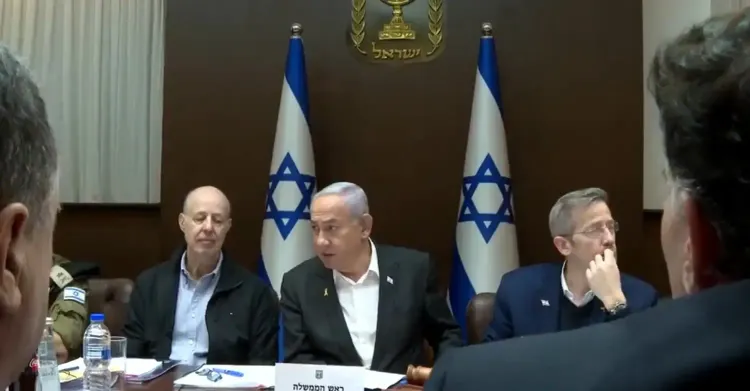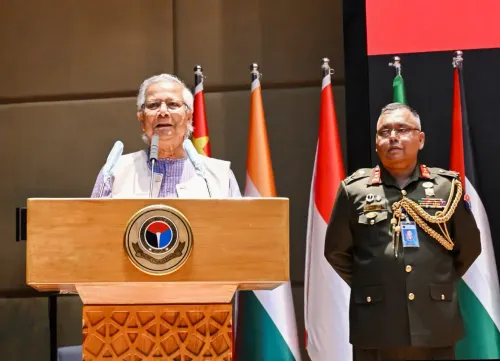Israel's Security Cabinet Approves Ceasefire-Hostage Accord

Synopsis
Key Takeaways
- Israel's security cabinet supports a ceasefire deal.
- Agreement involves hostage exchanges with Hamas.
- Implementation expected to start Sunday.
- Political tensions within Netanyahu's coalition may affect the deal.
- Continued Israeli airstrikes in Gaza reported.
Jerusalem, Jan. 17 (Xinhua) The limited security cabinet of Israel approved on Friday the Gaza ceasefire-for-hostage agreement, as per a statement from Prime Minister Benjamin Netanyahu's office.
The office indicated that the complete cabinet is anticipated to meet later on Friday for the agreement's final approval, which was initially disclosed by Qatar on Wednesday. Israel's endorsement of the agreement will only become official post the full cabinet vote.
Members of the security cabinet supported the deal "after reviewing all political, security, and humanitarian factors, and recognizing that the proposed arrangement aids in achieving the goals of the conflict," as stated in the announcement.
The ministers were initially set to vote on the deal on Thursday, but the meeting was postponed, with Netanyahu attributing the delay to Hamas for introducing last-minute hurdles regarding the conditions of the Israeli withdrawal from Gaza and the identities of the Palestinian prisoners to be freed.
Hamas confirmed on Friday that the disputes had been settled, following a prior statement affirming its commitment to the complete terms of the agreement.
This vote arrives amid worries that the execution of the deal could be delayed due to objections from far-right factions within Netanyahu's coalition government.
Itamar Ben-Gvir and Bezalel Smotrich, two far-right ministers, opposed the agreement in the security cabinet, as reported by Israel's state-owned Kan TV news.
The two ministers insisted on a governmental commitment to resume military actions in Gaza once the initial phase of the deal, which entails Hamas releasing 33 Israeli hostages, is concluded.
On Thursday, they declared their intention to exit the coalition if their conditions were not fulfilled, potentially leaving Netanyahu without a parliamentary majority.
Mediators, including Qatar, Egypt, and the United States, have outlined that the agreement comprises three stages aimed at achieving a "lasting ceasefire between the parties."
The ceasefire is anticipated to commence on Sunday, initiating the first phase. Combat will pause for six weeks, during which Hamas will release 33 hostages, comprising all women, children, and men aged over 50. Israel will withdraw its troops from populated regions in Gaza, and additional aid will be delivered to the enclave.
In exchange, Israel will liberate between 990 and 1,650 Palestinians held in its prisons, including all Palestinian women and children under 19, by the conclusion of the first phase, as reported by Xinhua news agency.
Additionally, a separate statement from the Israeli Prime Minister's office indicated that Hamas is expected to free three Israeli women on Sunday.
Despite the announcement of the agreement, the Israeli military persisted with airstrikes in Gaza. According to the Civil Defense Authority in Gaza, at least 103 Palestinians have lost their lives due to Israeli assaults following the announcement of the Gaza ceasefire.









